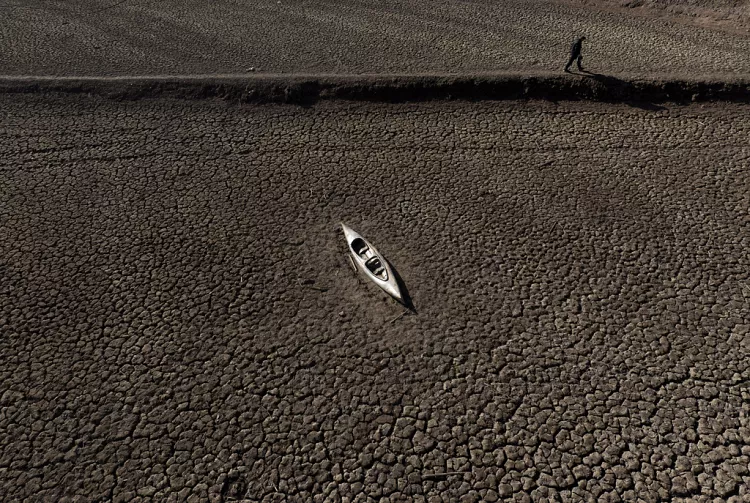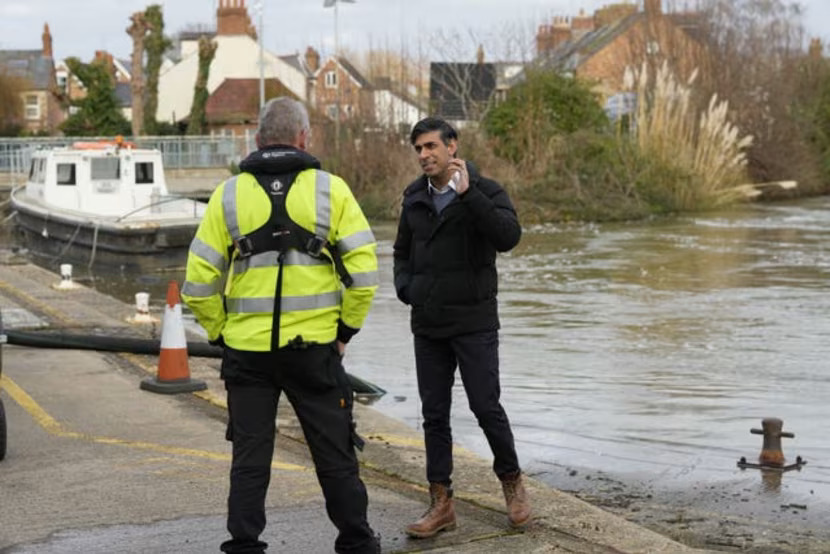At 2am last Sunday, as the temperature dropped below zero, a four-week-old baby was pulled out of the English Channel, clinging to life. Alongside, a pregnant woman with advanced hypothermia was rescued and admitted to hospital. Four people were found dead in the water; another body washed up hours later. All had been trying to cross the Channel to reach the UK.
Today, just three days later, we have the spectacle of the Conservative party voting to prevent people from claiming asylum in the UK. Instead, applicants will be flown to Rwanda to try their luck there, a country that the Government’s Bill declares safe—contrary to the view of the Supreme Court.
Rishi Sunak calls this ‘an effective deterrent’ to crossing the Channel. For this to be true, the possibility of living safely in Rwanda must be a fate more grave than the possibility of watching your newborn baby drown in freezing seawater in the dead of night. As Sophy Ridge might say: “I’m sorry, Prime Minister, but you can’t possibly believe that, can you?”
The Home Office has suggested that most of those who come to the UK in small boats are likely to have valid asylum claims. They are genuinely fleeing for their lives, and the rules allow them to resettle in the UK. In 2021, the then Home Secretary elected to lie about this, falsely claiming that ‘70% of individuals on small boats are single men who are effectively economic migrants’. No apology has been forthcoming.
The man who was, until last night, deputy chair of the Conservative Party, says that asylum seekers ought to ‘fuck off back to France’. He pretends not to understand that the UK’s asylum laws are more generous than those in France. In the UK, more than 80% of asylum claims are successful; in France, more than 80% are rejected.
The Rwanda plan maintains the UK rules, cements the underlying calculation and boosts the business model of people traffickers: risking life by crossing the Channel still offers the best hope by far for asylum seekers to be allowed to resettle in a country where they are safe from persecution.
There is a simple way to ‘stop the boats’—or, more accurately, to stop frightened, persecuted people risking their lives. Dangerous crossings of the Channel in small boats are unnecessary, a product solely of Government cruelty: we have ferries and a tunnel. The Government could allow people to apply for asylum before they arrive. If successful, the Government could provide safe passage. Instead, the Government prefers to continue with a system under which the only way that people can claim asylum is by coming to the UK, a fact which literally requires small boat crossings and on which the entire business model of human traffickers across the Channel depends.
Moving to offshore applications wouldn’t be easy: it’s hard for someone who is fleeing persecution to fill in forms and engage with bureaucracy. It would need to be a caring, supportive, accessible, approachable, thoughtfully designed service. It would probably be expensive. Neither Labour nor the Conservatives support this approach.
It takes only a passing acquaintance with history to understand that regret most often stems from treating people unkindly and inhumanely, not the converse. This isn’t a difficult long-term call, but the state of our politics means it’s not necessarily an electorally expedient one.
The politically astute thing for the Conservative party would have been to couple offshore applications with the Rwanda scheme: let people apply before reaching the UK and be given passage straight to Rwanda if successful, or passage to the UK if extenuating circumstances apply. It would still be an appallingly inhumane derogation of international law, but it would have been far more likely actually to stop dangerous crossings.
Instead, we’re invited to believe that the Prime Minister believes that living in Rwanda is a fate worse than death.
The image at the top of this post was generated by DALL·E 3.




